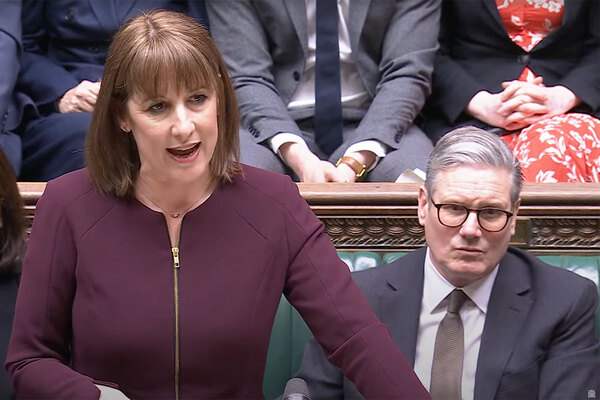Two G15 landlords report drop in half-year surplus
Metropolitan Thames Valley Housing (MTVH) and The Guinness Partnership have both seen their half-year surpluses drop as they continue to spend more on improving existing stock.
MTVH reported a 60 per cent fall in surplus year on year to £14m in the six months to the end of September.
Guinness saw its group surplus drop by a fifth to £16.4m in its half year.
In the six months to 30 September 2024, MTVH increased its investment in capitalised improvement works and gross fire safety spend, and during the full year the landlord plans to invest a record amount on development.
During the first half of the year, Guinness invested £99m on maintaining and improving its existing homes, up from £77m in the same period in the previous year. The half-year results also showed the landlord spent a further £98m on developing new homes.
MTVH
On an operating basis, the group reported that its surplus fell from £75m to £61m. Its operating margin decreased from 36 per cent to 27 per cent. MTVH said the results reflect a £20m lower surplus from fixed-asset disposals year on year.
Total revenue climbed from £209m to £227m, driven by a rise in revenue from rent and service charges due to the 7.7 per cent rent increase, and a £4m increase in sales revenue year on year.
MTVH increased its investment in capitalised improvement works from £16m to £20m and gross fire safety spend rose by £2m to £8m.
Mel Barrett, who took over as chief executive at MTVH from Geeta Nanda, said: “Our half-year results reflect our resilient business model and strong balance sheet, which have allowed us to invest in existing stock, deliver fire safety remediation, look after our residents and continue to develop new homes.”
He said that MTVH has provided record levels of financial support to its customers through its Tenant Welfare Fund and is on track to deliver 569 homes in the full year.
The landlord completed 236 homes in the first half of the latest year, a drop from 293 in the same period last year.
“We will also invest a record amount this year in new developments, to help build the new affordable homes that the country badly needs,” Mr Barrett said.
MTVH added that full-year turnover and operating surplus is expected to be in line with its budget.
The housing association said that an increase of 2.7 per cent to social rents for 2025-26 will boost revenues, but margins will continue to be under pressure as operating costs are forecast to rise at a higher rate, along with the £3m increase in its National Insurance costs.
The core housing business is expected to perform in line with its business plan expectations, MTVH said.
“Our strong first-half performance leaves us confident for the full-year outcome,” Mr Barrett said.
In its last full year, MTVH recorded a deficit of £80m after fire safety provisions and the write-down of decommissioned high-rise blocks.
The Guinness Partnership
Guinness reported a group surplus of £16.4m in its half year, down from £20.6m in the prior year. This figure included the results of Shepherd Bush Housing Association (SBHA), which it took on as a subsidiary a year ago.
Group turnover rose to £261m, up from £224m, helped by the 2024 rent increase of 7.7 per cent.
As a standalone entity for the six months, Guinness reported net financing costs of £36.4m in the six months ending 30 September, a rise from £29.9m in the same period last year. This was due to additional borrowing of £70m to fund its development programme.
Its operating costs rose from £169m to £184.5m, partly as a result of a high demand for its responsive repairs service.
In the six months to 30 September 2024, Guinness invested £99m on maintaining and improving its existing homes and spent a further £98m on developing new homes. Building safety spend reached £6.6m in the half year.
“While the operating environment for registered providers remains challenging, The Guinness Partnership remains financially resilient and continues to deliver effective core services and additional support to our tenants,” the group said in a filing.
The housing association said that in common with others in the social housing sector, it is delivering fewer new homes than it had originally set out to do, due to the need to invest in its existing homes and the broader economic environment.
Contractor failure within the construction sector has also impacted its new homes delivery programme and capacity to invest, Guinness added.
Despite this, the landlord said it remains committed to developing new homes and during the six months to 30 September 2024, completed 567 new homes (of which 497 were affordable), with a further 347 homes starting on site.
“We continue to monitor and manage the risks associated with delivering new homes to ensure that our exposure is at an appropriate level,” it said.
Guinness said there has been “significant progress” on integrating SBHA into the group, with both landlords working towards a full transfer of engagement on, or around, 1 April 2025.
Guinness entered into merger talks with SBHA in May last year, to help the smaller non-compliant west London landlord to invest in its existing homes and support them both to deliver more affordable properties together.
SBHA was downgraded to a non-complaint G3 rating in June 2022 over a serious failure of governance.
According to Guinness’ half-year results, in the six months to 30 September 2024, SBHA generated an operating surplus of £1.2m against turnover of £23.5m, delivering an operating margin of 5.2 per cent and an overall surplus after fixed-asset disposals of £900,000. All loan covenants have been met for the period, Guinness added.
Sign up for Social Housing’s weekly news bulletin
Social Housing’s weekly news bulletin delivers the latest news and insight across finance and funding, regulation and governance, policy and strategy, straight to your inbox. Meanwhile, news alerts bring you the biggest stories as they land.
Already have an account? Click here to manage your newsletters.
RELATED









